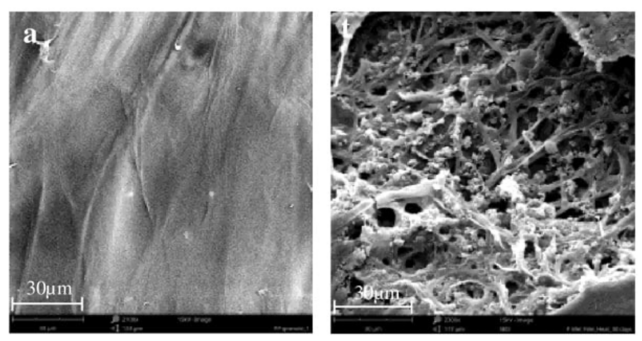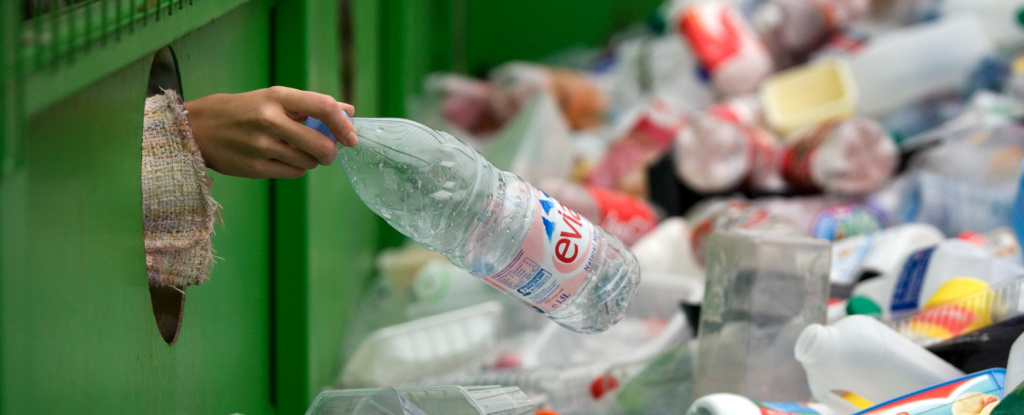Products You May Like
Almost a third of the world’s plastic waste is polypropylene, a hardy plastic used to make bottle caps and food containers that can take hundreds of years to degrade. But now, scientists have harnessed two strains of fungi found in soils to break down lab samples of polypropylene in just 140 days.
The two fungi, Aspergillus terreus and Engyodontium album, made a meal of the plastic in the lab experiments: Between 25 and 27 percent of samples were devoured after 90 days, and the plastic was completely broken down after 140 days, the researchers report.
The team of Australian scientists behind the study, led by graduate student Amira Farzana Samat, have described their work as an “important stepping stone” in designing practical biological ways to treat plastic waste.
“It’s the highest degradation rate reported in the literature that we know [of] in the world,” University of Sydney chemical engineer Ali Abbas told the Australian Broadcasting Corporation’s technology reporter Danny Tran.
While it might be a speed record for fungi, plastic-munching bacteria recently discovered in a compost heap have been able to break down 90 percent of PET, or polyethylene terephthalate, in just 16 hours. But a bit of healthy competition is good; that’s how evolution works.
More than 400 microorganisms have so far been found to degrade plastic naturally, with fungi attracting a fair bit of attention for their versatility and ability to degrade all sorts of synthetic substrates with a powerful concoction of enzymes.
“Recent studies suggest some fungi may even degrade some of the ‘forever chemicals’ like PFAS, but the process is slow and not yet well understood,” explains microbiologist Dee Carter of the University of Sydney.
On a basic chemical level, plastics are a string of carbon atoms adorned with different side chains that give each type of plastic its specific properties. Recycling plastics, in theory, should be as easy as picking apart the repeating subunits that makeup plastics and reassembling them into something new.
But there are so many different types of plastics that when all sloshed together and mixed with other materials as waste, they are practically impossible to separate and recycle. Most plastic waste is either incinerated or dumped into landfill.
“We need to support the development of disruptive recycling technologies that improve the circularity of plastics, especially those technologies that are driven by biological processes,” says Abbas.
Lab experiments showed that together, the two fungi could decompose granules and thin films of polypropylene, along with aluminum-coated polypropylene sheets.
While the researchers don’t yet know how exactly the fungi digested the plastic – that could be the focus of future research – the thinking is that fungi degrade materials like plastic into simpler molecules that they can then absorb or excrete.
As you can see in the image below, the usually smooth plastic became riddled with pockmarks as the fungi did their dirty work.

The method requires a pre-treatment step with either UV light, heat, or a chemical reagent, to weaken the waste material so the fungi can attack. This step mimics the environmental conditions necessary for fungi to latch onto and pry open plastics and is designed to make the degradation process more efficient.
Abbas says their method could be scaled up like any fermentation process but adds that his team has not yet optimized the experimental conditions for working at industrial scales. The method is also no substitute for efforts to reduce plastic waste, he says.
One foreseeable limitation common amongst plastic-crunching microbes is that they struggle to degrade more highly crystalline forms of plastic used in commercial products as well as they can other types of plastic waste.
The next steps for the researchers include building a benchtop prototype, testing modifications to speed up the process, and assessing the economic feasibility and environmental impact of using their method on commercial scales.
So often, however, it’s a bumpy road from experimenting on a lab bench to developing a commercial-ready product.
Last we heard in 2015, researchers behind an orb-like prototype device called the Fungi Mutarium – that turns plastic waste into a safe, edible product using two types of fungi – were continuing their work to speed up the decomposition process.
More recently, scientists have been busy finding ways to make useful bioplastics from air, creating recyclable plastics out of super glue instead of crude oil, and transforming plastic polymers back into liquid fuel.
These exciting discoveries will need a lot more work if they are to make an actual dent in the vast amounts of plastic waste that are fast piling up.
The research has been published in npj: Materials Degradation.
